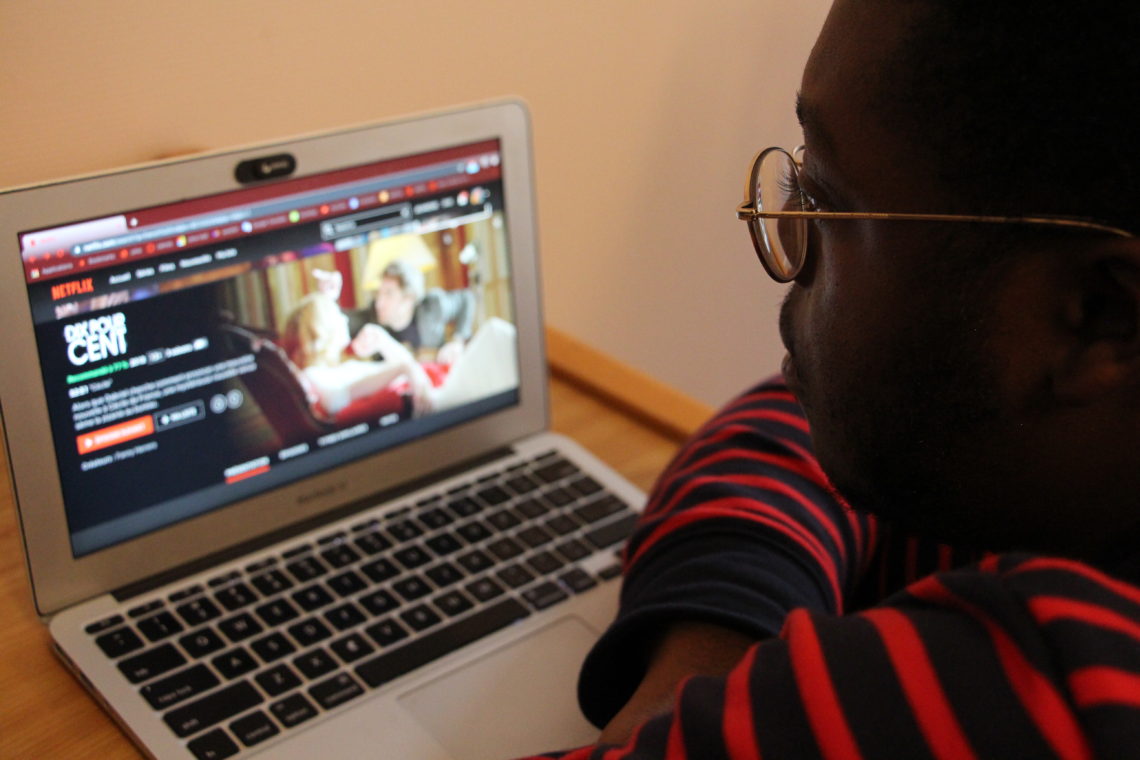
Five Reasons TV Shows are a Fantastic French-Learning Resource
In an effort to improve my foreign language acquisition, I have spoken with many people about how they learned English. One of the common themes I have found in these conversations is watching English-language television series. Therefore, early in my French-language journey, I started watching lots of French TV! Television series are an important part of cultures all over the world, so why not use them to boost language skills?
This article falls into a series of posts about different resources that you can use during your own French journey to help you reach your language-learning goals. Keep reading to find out about using TV shows as a French resource.
1. Cultural Insights
When it comes to learning a language, it is important to have an interest in the culture behind it – the two truly go hand in hand. Watching TV shows is a great way to get a glimpse into the culture of a particular place because of everything you’re able to learn from television, such as cultural values, practices, faux pas, and more!
2. Colloquial Treasure Trove
Television shows are first-and-foremost made to entertain an audience. Watching people talk like they’re reading an academic paper isn’t entertaining, and that is why television is a great way to increase colloquial vocabulary. Characters often use slang, idioms, and commonly used language that can help you to sound more like an experienced speaker of the French language.
3. Improves Listening Skills
Another thing that television can offer any language learner is the opportunity to improve auditory comprehension. When communicating with people, it is essential that we can understand them. Television shows can come in handy for this, especially for learners of French due to the lack of pauses between words and the rapidity of native speech.
4. They’re Short
TV series are an awesome resource thanks to their short duration. We all have things to do each day and it can be tough to squeeze in time to study. Many of us, however, easily find the time to watch a little something on TV. Why not combine the two? Turn studying into something fun, and turn something fun into a tool!
5. Seasons
The last reason that television shows are great for learning French is that they give the learner something to look forward to. Many popular TV shows really suck you in and make you want to keep watching. Make use of this! If you are constantly reeled into doing something that improves your language skills, the outcome can only be positive!
Jalen’s Suggestions
Netflix
Netflix is a leading producer and provider of high-quality content in several languages. Use it to your advantage for French language content! There is a lot to choose from and something for every interest.
- Pro tip: If you’re a Netflix user, you’re in luck. I have noticed that “Netflix Original” content is likely to have both audio and subtitles for your target language. This will allow you to combine the two according to your level. For example, beginners may use target language audio with native language subtitles, while an intermediate user might use target language audio with target language subtitles. If you’re more advanced, you could use no subtitles at all!
French Television Online
Much like in the United States, French-language television channels, like M6, offer the opportunity to watch their shows online. You could make an account online and watch shows ranging from reality TV, to cooking, to real-estate.
- Pro tip: M6 is not the only French-language television channel that offers this service. However, it is fairly common for this offer to be restricted to certain geographic areas. You may need to use a proxy server in order to take advantage of this suggestion.
If you watch TV to improve your language skills or have any other suggestions, leave a comment below the post! We’d love to hear what you have to say. Thanks for reading!
Check out the other posts in this series!
You May Also Like

Five Reasons Music is a Beneficial French-Learning Resource
February 12, 2020
How to Incorporate French Culture into Your Life From Anywhere
May 18, 2022


4 Comments
KJ
Great points of advice! I am exited to add this method to my learning plan. Netflix owes you plug-$😉.
Jalen & Maria
Thank you! We are happy that you are learning; keep up the good work! That would be nice, wouldn’t it? LOL.
Maurice
Hi Jalen and Maria,
So sorry for bombarding you with so many questions, but I think I speak for many when I say it is a joy to discovery others who share our passion for language learning and education.
I wanted to drill down a little deeper with you regarding some languag-learning concerns I’m having. Maybe concern is too strong a word; but just some things about my language learning process that I have been mulling over.
As you know from my previous posts, I’m sort of following in your footsteps to study higher education in France.
However, I’m learning the language pretty much on my own, and I sort of feel guilty about not doing verb conjugation drills or preposition drills. Should I feel guilty?
My tutor never makes me do long worksheets to test my ability in any particular area of grammar.
Basically, I have private Skype classes twice a week (2-hour sessions). The sessions are not really structured in that: this week we will work on the subjunctive; next week, the “future antérieure.” Nothing like that. We just have conversations, and as errors appear, he corrects them on the spot. I then go back and watch the recorded Zoom lessons to jot down all corrections into a Word doc for review. And finally, I make it a point to use at least 10 of those corrections or new phrases in the next lesson.
Given the fact that both of you went through a more traditional model to advance your French, do you think that helped or held you back? Did you have to do verb drills, proposition drills or grammar exercises? I ask because so many take university classes in any number of languages only to graduate not even being remotely proficient, much less fluent. Yet, I think if you know how to take advantage of the resources at most schools, they could be good training grounds.
So, what are your thoughts, particularly for someone hoping to get a masters degree in France? Should I feel guilty about not doing those verb conjugation and preposition drills?
Thanks again for taking us on this wonderful journey.
Maurice!
Jalen & Maria
Thanks for your comment and for sharing your experience with us.
We want to point out that Jalen, for a year, studied French on his own with Maria as his “tutor.” Using Duolingo, reading and listening to French children’s books, talking with native speakers on the Tandem app, writing passages on Lang8, doing writing exercises, watching francophone YouTube and movies, and using Maria’s old French textbooks and worksheets, Jalen went from speaking no French to testing out of three semesters of French at university.
Mastering grammar concepts, like verb conjugations, preposition usage, word order, gender agreement, pronoun use, tenses, and more, is extremely important for those wanting to reach an advanced level of French proficiency.
What you’re doing with your tutor sounds beneficial for speaking skills and confidence “à l’oral.” However, completing a graduate degree in France involves very advanced reading, writing, and listening skills that depend on a solid understanding of the technicalities of the French language.
In the beginning of our French-language education, we were both evaluated on nearly every grammar concept in the book. Later on, at university, we completed research papers, literary analyses, mock interviews, oral presentations, listening comprehension exercises, vocabulary memorization modules, phonetics work, translation, and even wrote senior theses in French. Immediately after graduation, we both passed the DALF C2.
In our personal experience as Logistics and Law students in France, we know that if we did not have an advanced level of French, we would have struggled, or possibly failed, the first year of our master’s degrees. However, our program choices were particularly rigorous as they were not intended for anglophone students to complete.
We suggest you incorporate more grammar into your routine as soon as possible.
Good luck!